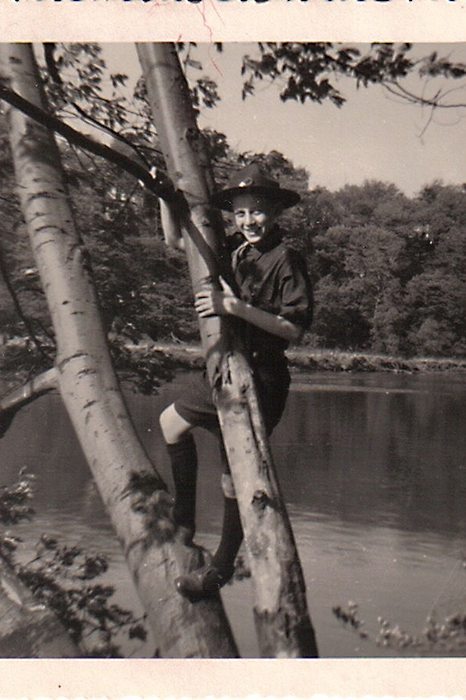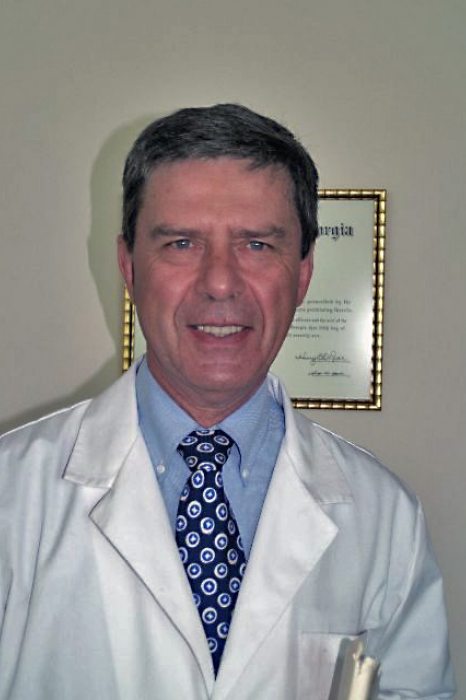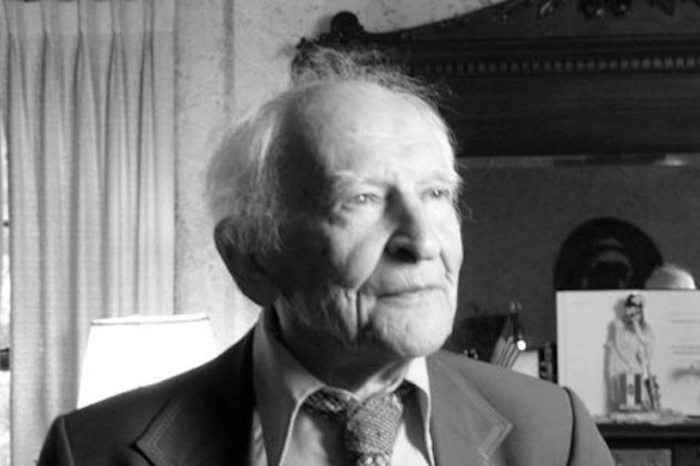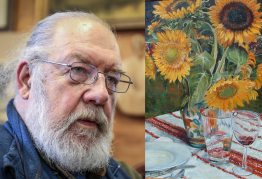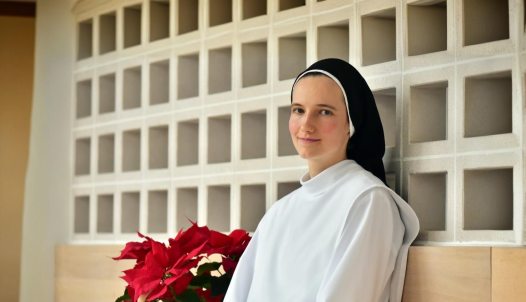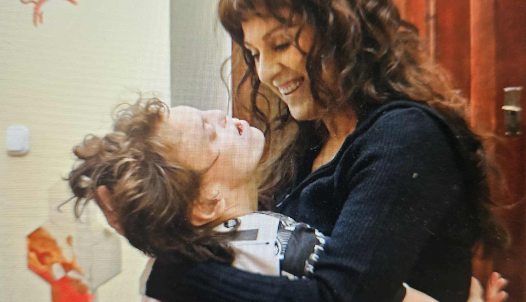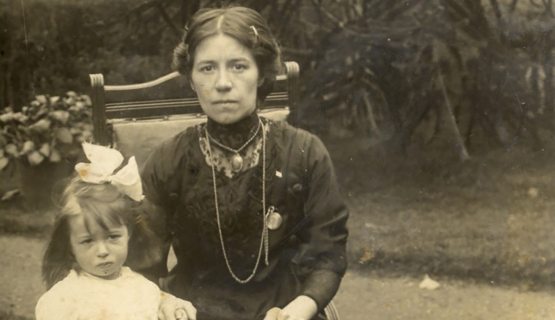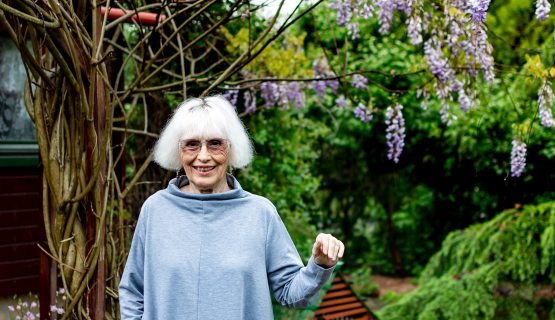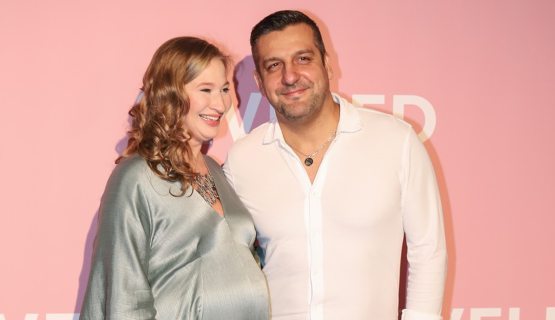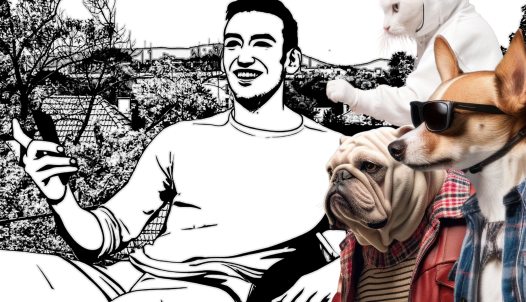„Many teenagers who believed in freedom died in the revolution”
I feel it's my duty to embrace the goal of the boys in Pest in '56, and that's why I'm working to help Hungarian youth achieve as much as possible in life," says Dr. Péter Forgách, a Hungarian retina surgeon in the US, whose Calasanctius Training Program offers scholarships to Hungarian students to study at US universities. His former scholarship holders have set up a foundation in Hungary, one of whose projects, the Youth Business Program, promotes and teaches entrepreneurship among Hungarian high school students.
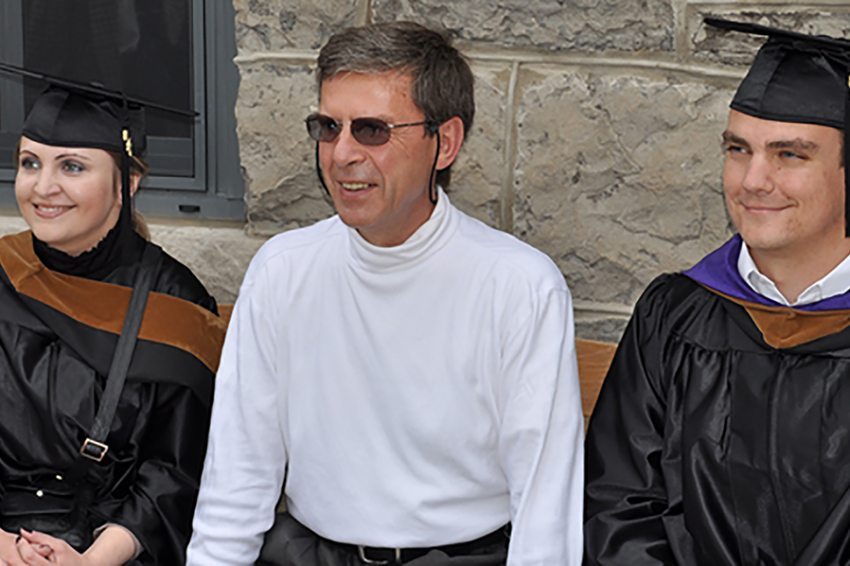
- A few years ago, you told me that you had a vivid experience from an occasion when you were ten years old, and you experienced what it was like to have your heart beat in your throat. Do you recall the event?
- Of course. There were actually two such events, both on 3 December 1956, when we left Hungary across the green border. Our leaders were former border guards, who told us that it was safest to cross the border at dusk, between five and six o'clock, because visibility conditions then were in our favour and the change of guards was at that time, too. All-day long, my parents and I watched border guards pick up and take away people trying to escape. We were just about to cross the border where our guides showed us when suddenly we heard the roar of a motorbike and soon noticed a jeep coming up behind us. Of course, we immediately dropped flat, trying to blend in as much as possible with the flora.
The jeep was passing maybe four or five metres away from us, scanning the border with its headlights - and we were lying right under its beam. I thought I was going to get a bullet in my back the next moment. My mother told me later that she was sure I was going to cry, because I was a ten-year-old child.
Well, that was the first time I experienced what it feels like to have my heart in my throat! Our guides showed us where to cross into Austria and told us that we would see a small wooden shack, that would be the Austrian border, and we should knock on it. So we did. It was very dark, so my father took out his torch and shone it on the guard shack. It had a German sign on it, which was a relief, but the next moment the door burst open and two soldiers rushed out of the booth with guns pointed at us. Now that was another time when I felt like my heart was about to burst.
- You had a math test in your pocket at that time, didn't you?
- Yes. (laughs) In 1956 I was in the fifth grade, we were studying fractions. I was a straight-A student, but I didn't study for this particular test, and I got a D. I had one week to have it signed by my parents, but I procrastinated, I didn't dare to bring it to my mother. One day a teacher came into the classroom saying that my mother phoned to ask me to go home urgently. I was sure that somehow she had found out about the test, and I hardly dared to go home. My mother sat me down, but she didn't want to talk about the test. She began to tell me that the Russians had taken everyone away and imprisoned them and that we could not expect much good here. We could go abroad, she said, but I didn't speak any languages then, I had friends in Hungary, this was my home. She wanted to know if I had any opinions about it.
The test with the D had been in my pocket for a week then, and my parents still didn't know about it, so I quickly decided that of course we should leave Hungary.
I still didn't say a word about the test, I hid it in my underwear, I fled from the country with it, and in the spring of 1957, I tore it to pieces and flushed it down the toilet in the refugee camp in Rome. Sometime around 2010, at a class reunion, I thanked my former math teacher for that D that was instrumental in getting me to the United States.
- And what memories do you have of Hungary from the times before your emigration?
- We were fans of the Golden Team. We were always eager to hear what was going on with Puskás. I was eight years old when they came down to Gyöngyös to play football, but it was impossible to get tickets for the game. I was totally desperate, but I didn't give up hope. The Wine Traffic Company had a Mercedes driven by a man called Imre Matusek. I saw him before the game and told him that I simply had to get in here, that it simply could not happen that I didn’t see the Golden Team when they were playing on our field. I asked Uncle Imre to let me get into his car because if I got out of that Mercedes, the people at the door would think I was the child of someone very important and would let me in. And so it happened: not only did they let me in, but I got to sit right on the bench next to Gyula Lóránt, the national team defense! I also remember that we used to listen to Radio Free Europe all the time at home, and in the morning at school, we used to discuss with the boys what we had heard the day before. We mistook Eisenhower with Adenauer, we didn't really see the world political context, but we knew that they were on the right side and we were enslaved by the bad. Back home, they told us who the fierce communists were and that we shouldn’t say anything in front of them.
We had a wonderful, brave teacher who would call some of us over every two weeks or so and tell us that what we were learning at school was not true. If any of us spoke out, she would be in big trouble - yet she took the risk of telling this to us.
It was also around this time that a friend and I found old communist party newspapers. We went to the main square in Gyöngyös and when there were a lot of people watching, we approached people who were known to be communists and asked them to buy them. Of course, they didn't dare to say that they didn't want the Party's paper, so they bought it, and we were able to buy ice cream with the money. Then there was a less cheerful incident: after the revolution, a friend and I threw paper leaflets out of the toilet window, on which we wrote in Russian: "Russians, go home!". It became a huge scandal; my friend was not admitted to any school. Finally, he was accepted in Pannonhalma, where he graduated from high school and became a Franciscan monk. If we hadn't left Hungary after the revolution, I would have become a hired help at the best.
- You became a successful retina surgeon with a private clinic, a father of four with an American-German-Japanese wife who also speaks Hungarian beautifully, and a Scout instructor. Didn't these all take enough energy, why did you need the Calasanctius Training Program?
- They did take a lot of energy, but I felt God gave me enough of everything so I can give back some of it.
I often remembered that many Hungarian teenage children died during the revolution, believing in freedom and fighting for opportunities for young Hungarians. I didn't die, with the help of God I was able to come out to America, to be successful, to live well; but I feel it is my duty to embrace their goal, so I work to help Hungarian youth achieve as much as possible in life.
And also, I owe them this, without them I wouldn't be where I am today. To this day, I carry a laminated picture of an armed Hungarian revolutionary teenager in my briefcase, so that I never forget - not that I could ever forget - the revolution.
My wife Kati has been my partner from the very beginning in setting up the program - we worked together in my clinic, by the way - we complement each other very well. We've grown together, we're like twins now. (laughs) I was happy that my children grew up in the company of intelligent Hungarian students.
- How do you see the Hungarians and how do you see the Americans?
- What I love about Americans is that they are endlessly optimistic, the sky's the limit for them. I think Hungarians are pessimistic, and I'm not the first to think that. There is this wonderful country, wonderful continent, and a government that I think is taking things in the right direction right now. The government can't do your job, you have to live your life, you have to do something to be happy.
Of course, there are always things you can disagree with, but to always be moaning about things is something I cannot identify with.
I know that some people here in America have a very different view of Hungarian conditions - and by the way, they do us, Hungarians in America, a lot of harm by spreading their views all over the places - but taking advantage of the opportunities provided by freedom of speech and freedom of expression of opinions, I’ll now tell you how I see this. Hungarians are very talented people, but they lack self-confidence, and this is something that needs to be worked on. In American schools, they instill an incredible amount of self-confidence into children, even though their lexical knowledge is minimal compared to that of Hungarians. On the other hand, Hungarian children cannot present their much greater knowledge.
Now we have a pilot project for young people who have graduated from high school, and I hope it will work and get off the ground. The first boy graduated this year in Pannonhalma, he is interested in international relations, so he is now doing a volunteer job for three months in Washington with a think tank. I really believe that for students after high school it's worth taking a gap year to travel, see the world - and get immersed in the subject they're interested in.
- I would like to commemorate your foster father, Tibor Baránszky, who died in 2019 and who saved more than three thousand Jews during World War II with Vatican support. Doesn't it make you sad that he is hardly remembered in Hungary?
- Last December, we were approached by Hungarian filmmakers who wanted to make a feature film about him, and we hope it will happen.
It is interesting that the Jewish community in Hungary did not react to his death, but we have received fantastic accolades from the Jewish communities in the US and Israel. Prime Minister Netanyahu wrote a letter to our family, my brother's Jewish friends flew over from China to Buffalo for his funeral, the Israeli ambassador was going to come, but his plane couldn't take off because of a snowstorm.
His funeral was attended by two bishops and the Chief Rabbi of Buffalo, who recited a kaddish. And recently we were approached by an Israeli lady who wants to write a book about dad. These all feel really good.
- In your house, there is a sign in a prominent place that says "Make a lot, save a lot, give a lot!”
- Yes, I say that a lot, but there is a big headwind in Europe. (laughs) America has a great tradition of giving. In Hungary, too, there are a lot of good-hearted people, and we like to use Széchenyi as a role model, but it would be nice to have more Széchenyis - because there are a lot of well-off people. In Buffalo, there are at least ten Széchenyis: they donate, they set up foundations, departments, schools, libraries, they buy equipment for hospitals - I hardly see that in Europe.
I'm not promoting a St Francis type of lifestyle, I just encourage those who have a surplus to give to others. It is important to be aware that if I want to live well and do good for my children, I have to give something back to society.
Dr Péter Forgách, Honorary Hungarian Consul in Buffalo, was born in 1946 in Gyöngyös. 25 years ago he founded the Calasanctius Training Program (CTP), which has already provided scholarships to hundreds of Hungarian students at various American universities. Participants in the program are expected to play an active role in the community and to put their knowledge to good use back home. It also sponsors the travel expenses of twenty Hungarian scouts from abroad to Hungary for three weeks each summer to help Hungarian children born abroad to get to know and love Hungary. He was awarded by the President of the Republic in 2005.
